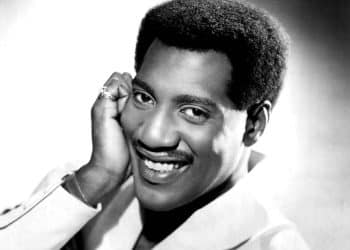Justin Timberlake says leaving 'N Sync behind was one of the best and worst things he's ever done.
Appearing on "Oprah's Master Class," the former "Bye Bye Bye" singer admitted that he felt the need to move forward not just because of an urge, but because music was changing.
"Why wouldn't you ride this out? You're the biggest group in the world. Why would you walk away from this? It's one of the best/worst things I have ever done. It was bittersweet. It was hard to kind of say goodbye to that era. But I felt it changing. I felt music changing. I felt myself changing," Timberlake told Oprah's Master Class.
In a second clip below, he said "Sexy Back," despite being a big success in his solo career, was hard to get off the ground because people couldn't believe it. They thought it was a joke.
"Oprah's Master Class" airs tonight, Sunday, at 10 p.m. on OWN.
Are you curious about Justin Timberlake’s journey from being part of a group to going solo?
In a recent interview on Master Class, Timberlake opened up about his bittersweet experience and how he felt the music industry changing around him.
Going solo was a mixed bag of emotions for Timberlake as he navigated through the transition, but it also allowed him to adapt and grow in an ever-evolving landscape.
When Justin Timberlake decided to go solo, it wasn’t all sunshine and rainbows.
He experienced a whirlwind of emotions – excitement, apprehension, and even sadness.
Transitioning from being part of a successful group to taking center stage can be both exhilarating and nerve-wracking.
But for Timberlake, it was bittersweet.
On one hand, he had the freedom to explore his own creative vision and express himself in ways he hadn’t before.
On the other hand, leaving behind the familiarity of his group meant stepping into uncharted territory.
And as he embarked on this new chapter in his career, he couldn’t help but feel the winds of change blowing through the music industry.
Transitioning from Group to Solo: A Mixed Bag of Emotions
Transitioning from a group to going solo can be a rollercoaster of emotions, with the bitter taste of saying goodbye mixed with the sweet anticipation of charting your own musical path.
It’s like standing at the edge of a precipice, unsure if you’ll fly or fall. Justin Timberlake experienced this firsthand when he made the decision to leave *NSYNC and embark on his solo career. The excitement of pursuing his own artistic vision was tinged with sadness as he bid farewell to his bandmates and everything they had built together.
As Justin Timberlake began his solo journey, he couldn’t help but feel a sense of bittersweetness. On one hand, he was eager to explore new sounds and push boundaries in his music. He wanted to challenge himself and see where his talents could take him outside the confines of being part of a group.
However, there was also a pang of nostalgia for *NSYNC and all the memories they had created together. Letting go is never easy, especially when it means leaving behind something that has shaped your identity for so long.
Moreover, Justin Timberlake noticed that music itself was changing during this transitional period in his career. He saw new genres emerging and evolving tastes among listeners. This added another layer of complexity to his decision to go solo – would he be able to adapt and stay relevant?
Despite any uncertainty, Justin Timberlake embraced the challenge head-on and used it as motivation to create music that not only reflected who he was as an artist but also resonated with this shifting musical landscape.
Transitioning from a group to going solo is an emotional journey filled with both highs and lows. Justin Timberlake’s experience serves as a reminder that change can be both exhilarating and heartbreaking at the same time.
Yet, by embracing these mixed emotions and staying true to oneself, an artist can carve out their own unique path in the ever-changing world of music.
Adapting to the Changing Landscape of the Music Industry
Adapting to the evolving music industry landscape can be a challenging yet exciting journey for artists. As an artist, you have to constantly stay on top of trends and be willing to experiment with different genres and styles.
The music industry is constantly changing, with new technologies and platforms emerging all the time. It’s important to embrace these changes and find ways to connect with your audience in innovative ways.
One of the biggest shifts in the music industry has been the rise of streaming platforms. With the decline of physical album sales, artists now have to focus on getting their music heard through online streaming services like Spotify and Apple Music. This means that as an artist, you need to understand how these platforms work and how to promote your music effectively on them. Building a strong online presence has become crucial for success in today’s music industry.
Another major change in the music industry is the power of social media. Artists now have direct access to their fans through platforms like Instagram, Twitter, and TikTok. This allows you to engage with your audience on a more personal level and build a dedicated fan base. However, it also means that you have to constantly create content and stay active on social media in order to stay relevant.
Adapting to the changing landscape of the music industry requires artists to be flexible, open-minded, and proactive. Embracing new technologies like streaming platforms and leveraging social media can help you connect with your audience in new ways. While it may be challenging at times, staying ahead of trends and finding unique ways to showcase your talent can lead to exciting opportunities for success in this ever-evolving industry.
Conclusion
So there you have it – Justin Timberlake’s journey from being part of a successful group to venturing out as a solo artist was definitely bittersweet. In his Master Class interview, he openly admitted that while going solo brought him new opportunities, it also meant saying goodbye to something that had been such a big part of his life. It’s easy to understand the mixed bag of emotions he must have experienced during this transition.
But despite the bittersweet nature of going solo, Timberlake also recognized the changing landscape of the music industry. He acknowledged that music was evolving and felt compelled to adapt and explore new styles and sounds. This willingness to embrace change is what has allowed him to continue thriving as an artist, even after all these years. It serves as a reminder for all musicians that staying relevant in an ever-changing industry requires flexibility and a willingness to take risks.
In conclusion, Justin Timberlake’s experience in going solo highlights both the emotional challenges and exciting possibilities that come with stepping away from a successful group. His ability to adapt and evolve with the changing times has undoubtedly contributed to his continued success in the music industry. So if you find yourself at a crossroads in your own musical career, take inspiration from Timberlake’s journey and remember that sometimes embracing change can lead you down unexpected but rewarding paths.






